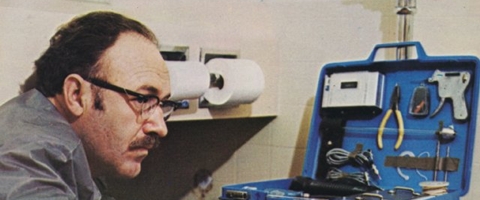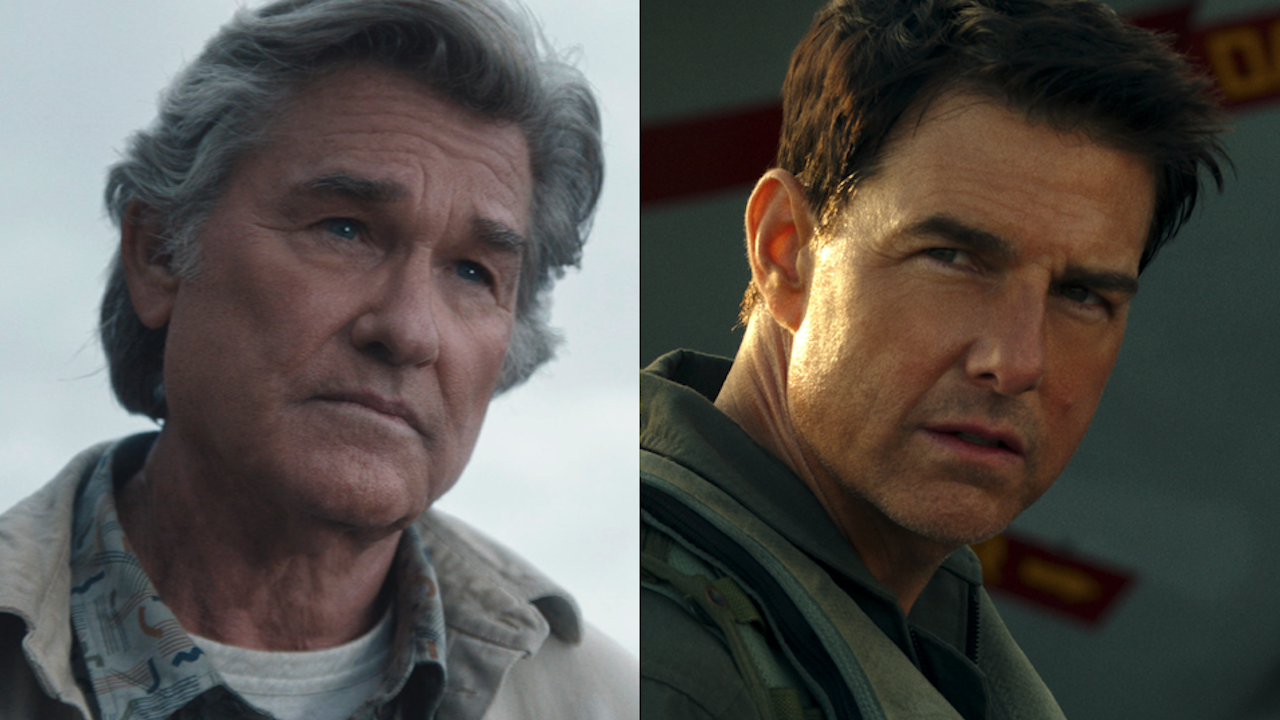Harry Caul (Gene Hackman) just wants to do his job. That job is surveillance, and he is perhaps the best in the business. Harry lives, eats, and breathes his work, accepting nothing less than perfection in the pursuit of a clean recording. The content and questionable morality of these recordings is of no consequence to him. He simply considers it beyond his purview. The Conversation that Harry Caul records in San Francisco's Union Square, however, gives him pause. It's a cryptic dialogue between a young couple (Frederic Forrest and Cindy Williams) which strongly suggests that they will be murdered. Probably by the mysterious and powerful man known only to Harry as "the director" (Robert Duvall). Because a previous job left three innocent people dead, Caul becomes fixated with one particular sentence in the recording, which he plays over and over, as though the repetition would eventually reveal its meaning.
"He'd kill us if he got the chance."
Harry is a loner and a man obsessed with his own privacy. He has no personal relationships and considers everyone a potential threat. He is the man on the other side of the wall, sitting alone, listening to others but never considering making any human contact. This is the dramatic irony of writer/director Francis Ford Coppola's masterful film, easily one of the finest of the 1970s. Harry Caul, the man who stays safely on the fringe, who never becomes involved, a man who is so safe that he wears a clear plastic raincoat over his trench coat, rain or shine, becomes obsessed with the idea of saving the lives of this young couple, neither of whom he has ever met.
Made in-between the two Godfather epics, The Conversation must have seemed like a small, indie-scaled project for Coppola. The small scale is merely in terms of production, however, as the film's themes are just as epic. It is a film of the 1970s , not only in its European art-film-influenced minimalism and existentialism, but also in terms of its subject matter. The assassinations of JFK, MLK, and RFK, along with Vietnam and the American Dream-souring revelations of Watergate, led to a string of enigmatic conspiracy thrillers such as The Parallax View and All the President's Men. Like those films, The Conversation is rooted in the new American anxiety of the time, the idea that behind every ideal was a rotten, festering truth.
Of course, being a film "about" sound recording, the fact that the great Walter Murch was the film's editor and in charge of "sound montage" is significant. Murch is probably the most influential sound and film editor of his generation. His work on THX 1138 and Apocalypse Now is legendary. I'd say that at least half the credit has to go to Murch for the quality of the final product, especially given the fact that he was basically given free reign by Coppola to put the film together since the director had to immediately begin production on The Godfather, Part Two.
Hackman has certainly given many great performances in his long career, but his work in The Conversation has to be his most unique. In most of his roles, Hackman is loud, aggressive, charismatic, and boisterous. In the Director's Commentary here, Coppola discusses Hackman's difficulty with the role since Harry was about as different from the actor as night from day. But I think this may be the secret as to why Hackman is so effective. A more cerebral and introspective actor may have been more suitable, but there is a palpable energy that comes from watching Hackman bottle up that intensity. He looks like he's going to explode.
If none of this sounds like your cup of tea, there is at least the fun of watching a young Harrison Ford in the film, looking all of 12 years old and dressed in his Dad's business suit. You also get wonderful cameo performances by an equally young Teri Garr and the great Allen Garfield. Oh, and this also proves the "John Cazale" theory: that being that any film with John Cazale in it must be a classic.
Your Daily Blend of Entertainment News
By the way, The Conversation lost the Academy Award for Best Picture to Coppola's other movie of 1974, The Godfather Part Two. Must've been some year, Francis. The "bad" news is that the two fantastic commentaries on this disc are simply ported over from the earlier DVD release. Luckily, that's the end of the bad news. Those commentaries by Francis Ford Coppola and Walter Murch are worth a semester of Film School. To have them again, not really a problem. Two other extras, "Close up on The Conversation" and an archival on-set interview with Gene Hackman, are also old but still quite welcome. The good news is that the disc looks and thankfully sounds fantastic, and is filled with over an hour of amazing new material.
The new material includes Francis Ford Coppola interviewing the film's composer David Shire, archival screen tests for Harrison Ford and Cindy Williams, a discussion with Coppola about his early short film, No Cigar, and how it relates to the themes of The Conversation, a featurette on Harry Caul's San Francisco which contrasts the film's locations then and now, and, best of all, archival audio of Francis Ford Coppola dictating his original script.
Accompanied by images of the actual script pages as well as stills and clips, this is simply a recording of Coppola reading through his script. Coppola often used recordings or stagings as a way of getting deeper into the material, and there is something quite informative in hearing the author himself read his work. It's not something you get to hear much in terms of movies since the movie itself, not the script, is considered the final product. Indeed, quite a few scenes Coppola reads are not in the actual film.
The Conversation's trailer rounds out the film's extras. If I had one bone to pick about this absolute "must buy" disc, it's the awful big-Hackman-head cover art. Not that the other posters and cover art did not make use of that image, but they were done in much more artful ways. This cover looks like something I could do in Photoshop Elements given an hour and some strong coffee.

